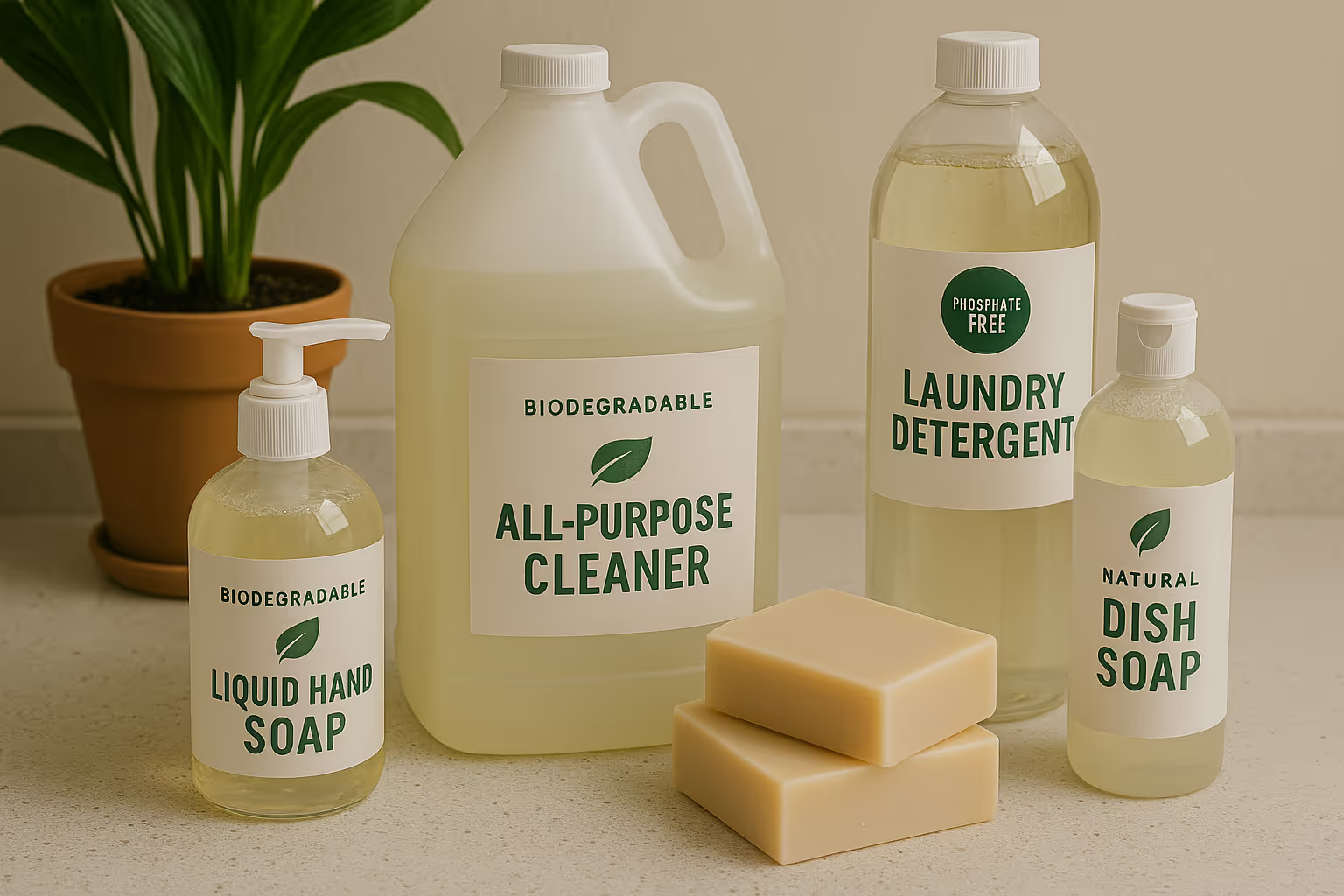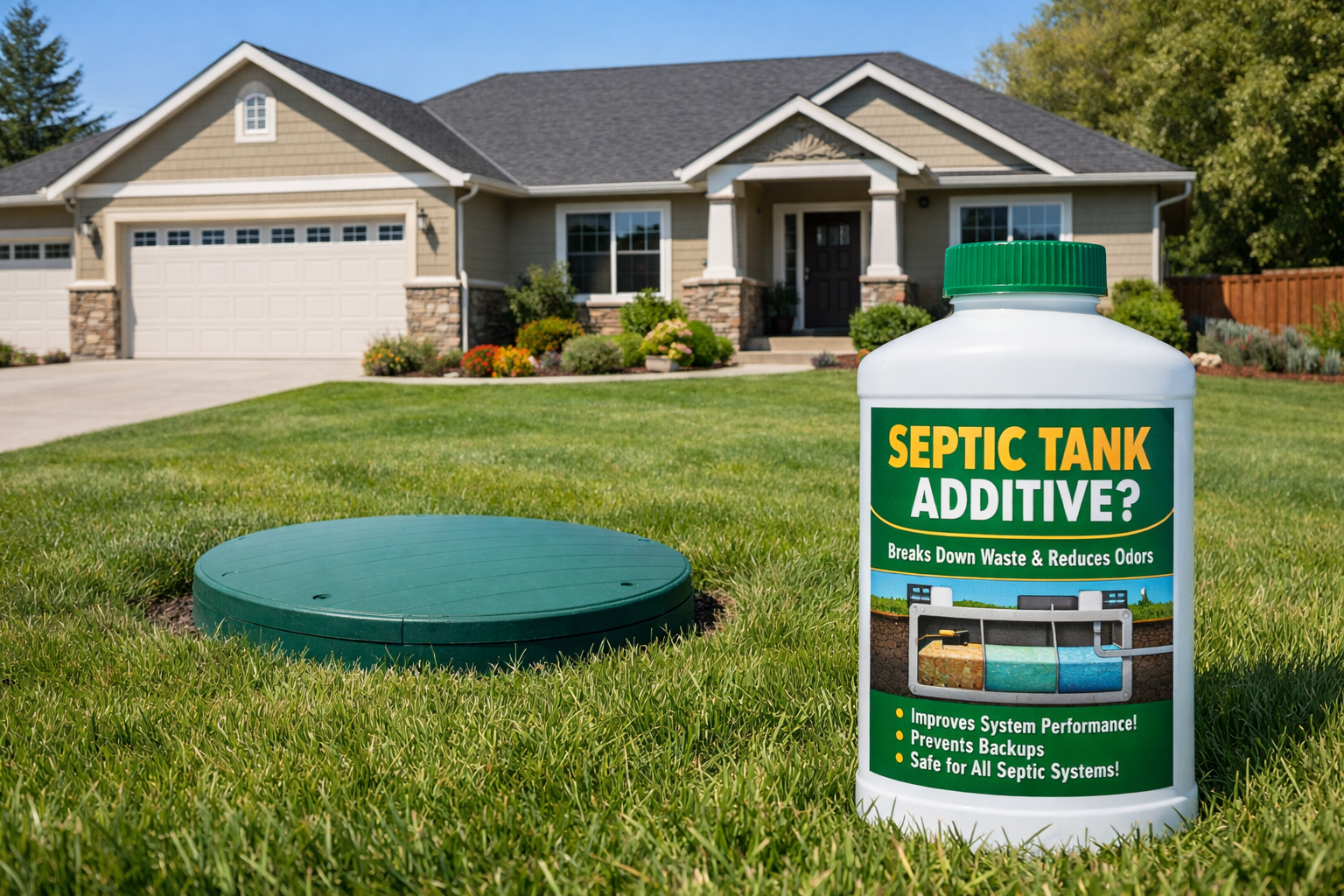Sacramento homeowners want clean laundry and clear drains without surprise repair bills. The fastest way to get both is to choose a septic safe detergent and build a simple routine that protects your tank bacteria, your drainfield, and your wallet. With Blue Ribbon Septic, you get practical help, local expertise, and a clear plan that keeps everything flowing.
Introduction to Septic Systems
If your home isn’t connected to a public sewer system, you rely on a septic system to manage all your household wastewater. A septic system works by using beneficial bacteria to break down solid waste, keeping your system running smoothly and your property safe from backups. These essential bacteria are the heart of a healthy septic system—they digest waste, reduce sludge, and help prevent clogs and costly repairs.
However, not all household products are septic safe. Harsh chemicals, antibacterial agents, and some laundry detergents can harm the helpful bacteria your system depends on. When these bacteria are disrupted, your septic system can’t break down waste efficiently, leading to buildup, odors, and even system failure. That’s why it’s crucial to choose septic safe laundry detergents and septic safe bathroom cleaners. These products are designed to clean effectively without harming the bacteria that keep your septic system healthy. By making smart choices with your detergents and cleaners, you protect your system, your home, and your wallet.
What Is A Septic Safe Detergent?
A septic safe detergent is a liquid or low-sudsing product that is biodegradable, phosphate-free, and gentle on tank bacteria. Choose concentrated liquids, use small doses, skip antibacterial and heavy-bleach mixes, and spread laundry loads across the week. These habits help keep your septic system functioning properly and extend its lifespan.
Why Septic Safe Products Matter In Sacramento
“Septic safe” means the product breaks down easily, does not overload your system with fillers, and does not wipe out the bacteria that digest waste. When choosing cleaning products or laundry detergents, look for common ingredients to avoid, such as bleach, phosphates, and antibacterial agents, as these can harm your septic system. University extensions note there is no official designation for septic safe laundry detergents, so your best bet is liquids and correct dosing, and always review ingredient lists to help you choose septic safe options.
How Detergents Affect Tank Bacteria And The Drainfield
Too much phosphorus from cleaners can enter groundwater and speed algae growth, which stresses soils and nearby waters. When you flush or drain household wastewater, it travels from your home into the septic tank and then to the drain field for further treatment. In short, phosphorus can speed up eutrophication, so go phosphate-free.
For daily care, the University of Minnesota Extension septic care page also recommends simple, consistent habits that protect your system. Protecting the drain field is essential for long-term system health.
What To Buy: The Simple Septic Safe Shopping List
Liquid Vs Powder Vs Pods Vs Sheets
- Liquids: Top choice. They dissolve fast and avoid the clay-type fillers found in some powders that can add to sludge.
- Powders: Avoid powdered detergent if possible, especially low-cost formulas with fillers, as powdered detergent can contribute to septic system clogging and increase the risk of blockages.
- Pods: Fine in moderation if labeled low-sudsing and phosphate-free.
- Sheets: Convenient and low-sudsing detergents for HE washers also apply here.
Quick Labels To Look For Every Time
- “Biodegradable” or “Readily biodegradable”
- “Phosphate-free”
- “HE” or “Low suds”
- “Fragrance-free” or “Lightly scented”
- “Plant-based surfactants”
Pro tip: If two options seem equal, pick the one with the shortest ingredient list and lighter scent.
Watch out: If your machine is HE, always use low-sudsing products. HE washers use less water and excess foam can cause poor rinsing and residue.
Step-By-Step: Your Septic Friendly Laundry And Cleaning Routine
Doses, Scheduling, And Storage
- Measure, do not eyeball. Use the smallest dose that gets clothes clean.
- Space laundry over the week to avoid hydraulic overload.
- Run a monthly hot rinse cycle without detergent to clear residues.
- Store concentrated cleaners away from kids and heat.
- Keep a small log of loads and products that worked best.
For septic-safe cleaning and to gently disinfect, consider natural alternatives like baking soda, lemon juice, and white vinegar. These options are effective, environmentally friendly, and help maintain a healthy septic system without harsh chemicals.
Pro tip: Pair good products with regular maintenance. If you have not pumped in a while, schedule a check with Blue Ribbon Septic using this guide to septic safe detergent and septic safe cleaners within your whole care plan. Book a reliable septic tank cleaning service.
A Short Checklist You Can Print
- Use septic friendly detergent liquids, small doses.
- Choose septic safe soap and septic friendly cleaners.
- Avoid daily antibacterial use.
- Choose cleaning products safe for septic systems.
- Spread laundry loads
- Schedule routine cleaning and inspections
The “Do Not Use” List Most People Miss
Antibacterial, Heavy Bleach, And Fragrance Overload
Antibacterial soaps and strong disinfectants kill good bacteria as well as germs. These products are often marketed as stain removers and household cleaners, but their killing action can harm your septic system by killing essential bacteria. Use them sparingly and never as your default. Using harsh stain removers can also disrupt the balance of bacteria in your tank.
Internal help: Learn how bacteria balance keeps your tank healthy and why product choice matters in Blue Ribbon’s guide to septic safe cleaning product choices aligned with bacteria care. See bacteria balance essentials.
Powder Fillers And Phosphates
Some powders add fillers that can build sludge fast. Skip any product that does not say phosphate-free. Avoid pouring grease and drain cleaners down your drains, as these can cause clogs and blockages in your septic system. For broader septic habits, see these items to keep out of your septic system.
Common Myths And Mistakes To Avoid (6 Fast Fixes)
- “More soap cleans better.” Reality: Overdosing creates residue and stress. Fix: Use measuring caps.
- “Antibacterial is always safer.” Reality: It harms tank bacteria. Fix: Use standard soap for routine handwashing.
- “HE machines can use any detergent.” Reality: They need low suds. Fix: Buy HE-marked liquids.
- “Phosphate-free is optional.” Reality: Phosphorus threatens water quality. Fix: Always choose phosphate-free
- “Powder is cheaper, so it’s best.” Reality: Fillers can build sludge. Fix: Prefer liquids.
- “If it smells strong, it’s cleaner.” Reality: Heavy fragrance can signal unnecessary additives. Fix: Choose fragrance-free.
Compare And Choose: Best Everyday Options For Busy Homes
Laundry, Dish, Hand Soap, And All-Purpose Picks
Use this quick matrix when you shop:
- Laundry: Liquid, HE, light scent or fragrance-free, best detergent for septic systems, labels if available. Choose products that are also safe for toilets and bathroom surfaces that drain into your septic system.
- Dishes: Liquid dish soap, phosphate-free, small dose per sink load. Opt for dish soaps that are safe for toilets and other bathroom surfaces.
- Hand Soap: Regular non-antibacterial liquid. Make sure your hand soap is safe for use on bathroom sinks and toilets that connect to your septic system.
- All-Purpose: Plant-based spray, biodegradable, minimal dyes. Select all-purpose cleaners that are safe for all household surfaces, especially those that drain into your septic system.
- Toilet Cleaner: Use a septic safe toilet cleaner with non-toxic, natural ingredients to maintain hygiene in toilets while protecting your septic tank.
Pro tip: If you also want to review paper choices, check Blue Ribbon’s guide to septic-safe cleaners and cleaners for septic systems alongside paper that breaks down quickly. See septic safe toilet paper tips.
When To Call Blue Ribbon Septic
- You smell sewer odors, drains are slow, or wet spots appear. Check urgent failure signs.
- Maintaining your septic system is essential for your family's health and safety. You cannot remember your last pump-out? See the cleaning schedule guide.
- You need a local pro to inspect, clean, or install risers for easier service. Explore Sacramento septic services.
- Buying or selling a home with a septic system. Get a real estate inspection.
- I want smart monitoring to stay ahead of problems. Learn about septic sensors.
Local note: Blue Ribbon Septic serves Sacramento, Roseville, Elk Grove, Auburn, and nearby communities with honest pricing and friendly techs.
Choose Smart Products, Protect Your System
Picking the right septic safe detergent is a small change that pays off. Liquids, low doses, and steady habits protect bacteria, reduce sludge, and help your drainfield breathe. Protecting your system's health means supporting the natural process of breaking down waste in your septic tank. Add a once-a-year maintenance check, and you will prevent most home septic emergencies.
Why Blue Ribbon Septic: A local team, clear scheduling, and no-surprise service. If you want help choosing septic safe cleaning product types for your home, we can pair product advice with a maintenance plan that fits your usage.
Next steps:
- Book routine cleaning so your list of cleaning products is safe for septic systems and works as intended. Schedule septic tank pumping.
- Save this page, print the checklist, and replace one product this week.
- Call for a quick estimate and friendly advice.
Bullet takeaways
- Use liquid, low-sudsing, phosphate-free cleaners.
- Protect your system's health by choosing products that support breaking down waste naturally.
- Keep antibacterial and heavy bleach for rare jobs.
- Measure small doses and spread laundry loads.
- Maintain on schedule with Blue Ribbon Septic.
FAQ Section — Septic Safe Detergent & Cleaners: Quick Answers
Q1. What makes a product a septic safe detergent?
Biodegradable, phosphate-free, low-sudsing formulas that do not harm tank bacteria and work with HE machines.
Q2. Are powdered detergents bad for septic systems?
Many use fillers that can add to the sludge. Liquids are safer because they dissolve fully.
Q3. Do I need antibacterial soap at home with a septic tank?
No. Reserve antibacterial for occasional disinfecting. While some products are effective at killing germs, they can also kill the beneficial bacteria your septic system needs. Daily use can reduce helpful bacteria.
Q4. How much detergent should I use per load?
The smallest measured dose that still cleans. Overdosing causes residue and stress on your system.
Q5. Why avoid phosphates?
Phosphorus can fuel algae growth and stress soil and water near your system. Choose phosphate-free.
Q6. My washer is HE. Does that change my detergent choice?
Yes. Use low-sudsing HE liquids for proper rinsing and septic friendliness.
Q7. Is bleach safe for septic systems?
Bleach kills both harmful and helpful bacteria in your tank. Frequent use can disrupt the balance your septic system needs to function properly. Use sparingly.






